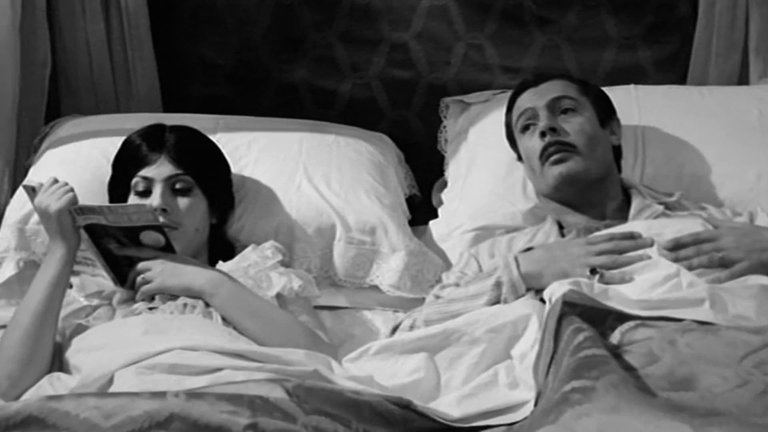
The rich tapestry of Italian cinema is marked by its diverse genres, many of which flourished in the decades following World War II. Terms like "peplum," "giallo," "spaghetti Western," and "macaroni combat" have become integral to the lexicon of global cinephiles, each representing unique facets of Italian storytelling. Among these genres, commedia all’italiana—literally translated as "comedy Italian style"—stands out as a significant cultural phenomenon. This genre is epitomised by the 1961 film Divorce Italian Style, directed by Pietro Germi, which not only encapsulates the comedic essence of its time but also critiques the societal norms that governed Italian life.
Divorce Italian Style is adapted from Giovanni Arpino's 1960 novel A Crime of Honour. Arpino, a noteworthy author, is also known for his story Il buio e il miele, which later inspired the acclaimed 1974 film Scent of a Woman and its Hollywood remake in 1992.
The narrative unfolds in the Sicilian city of Agramonte, where we meet the protagonist and narrator, Ferdinando Cefalù, portrayed by the charismatic Marcello Mastroianni. At 37 years old, Ferdinando hails from a once-respected but now impoverished family, living in a dilapidated ancestral home shared with various relatives. His primary concern revolves around his marriage to Rosalia (played by Daniella Rocca), a woman he has grown to detest after two decades together. The situation becomes increasingly intolerable when Ferdinando falls for his 16-year-old cousin Angela (played by Stefania Sandrelli). With divorce illegal in Italy at the time, he devises a more sinister plan: murder. To evade severe punishment, he studies criminal law to exploit loopholes that would allow him a lighter sentence if he claims his actions were motivated by honour. Ferdinando's scheme involves orchestrating an affair between Rosalia and her former lover, Carmelo Patanè (played by Leopoldo Trieste), leading to a series of darkly comedic events that complicate his murderous intentions.
In many ways, Divorce Italian Style serves as a product of its era—a period marked by profound social and cultural transformations known as the post-WW2 Italian Economic Miracle. This era saw a stark contrast between burgeoning prosperity and the enduring grip of traditional customs and Catholic doctrine. Germi's film cleverly exploits this tension, using satire to critique both the absurdity of societal norms and the rigidity of legal structures that hinder personal freedom. The humour often veers into darker territory.
Interestingly, while Arpino's original novel is set in the 1920s and addresses honour killings with a serious tone, Germi's adaptation, which ultimately won number of prestigious awards, including Oscar for Best Adapted Screenplay, shifts to a contemporary setting infused with comedic elements. This decision not only modernises the narrative but also targets the institution of marriage itself, suggesting that the lack of divorce options forces unhappy spouses into convoluted and often ludicrous alternatives.
The setting in Sicily further enhances the film's exploration of tradition versus modernity. The region's cultural landscape amplifies public displays of religious fervour and emotional expression, often leading to comical situations. Germi incorporates regional stereotypes that may not align with contemporary sensibilities regarding political correctness; however, these elements serve to underscore the film’s critique of societal norms.
Moreover, Divorce Italian Style provides valuable insights into early 1960s Italy through its microcosmic portrayal of Agramonte. The political backdrop reflects the broader landscape of the First Italian Republic, characterised by corruption within the Church-backed Christian Democracy and opposition from weakened Communist factions. The presence of a figure from unnamed by easily recognisable Mafia, embodied by character of Don Ciccio Matara (played by Giovanni Fasiolo), adds another layer to this social critique.
The film also engages with changing social mores through its intertextual references, notably to Federico Fellini’s La Dolce Vita. The screening of this iconic drama as part of the plot Divorce Italian Style not only serves as a nod to contemporary cinematic trends, but also highlights the clash between traditional values and modern desires—a theme central to both films.
The cast delivers exceptional performances that elevate the film’s impact. Mastroianni portrays Ferdinando as a coldly calculating yet pitiable character whose morally dubious actions elicit both laughter and sympathy from viewers. Daniela Rocca’s performance as Rosalia is particularly noteworthy; former Miss Catania intentionally presents her character as unattractive and bothersome—a choice that adds depth to her role. Ironically, Rocca fell in love with Germi during filming; following his rejection, she tragically attempted suicide, which significantly impacted her promising career.
15-year old Stefania Sandrelli appears in the film much less, but her character is equally significant; her character, which was until that time dressed conservatively, embodies triumph of modernity by appearing in bikini at the very end scene, which also provides rather ironic, albeit somewhat ironic twist to the plot, thus providing one of the best endings in history of 20th century cinema.
While Divorce Italian Style may require some patience or an understanding of its historical context from viewers unfamiliar with its themes or setting, those who engage with it will find themselves rewarded with one of Italian cinema's most entertaining classics.
RATING: 8/10 (+++)
Blog in Croatian https://draxblog.com
Blog in English https://draxreview.wordpress.com/
InLeo blog https://inleo.io/@drax.leo
Hiveonboard: https://hiveonboard.com?ref=drax
Rising Star game: https://www.risingstargame.com?referrer=drax
1Inch: https://1inch.exchange/#/r/0x83823d8CCB74F828148258BB4457642124b1328e
BTC donations: 1EWxiMiP6iiG9rger3NuUSd6HByaxQWafG
ETH donations: 0xB305F144323b99e6f8b1d66f5D7DE78B498C32A7
BCH donations: qpvxw0jax79lhmvlgcldkzpqanf03r9cjv8y6gtmk9
Posted Using InLeo Alpha